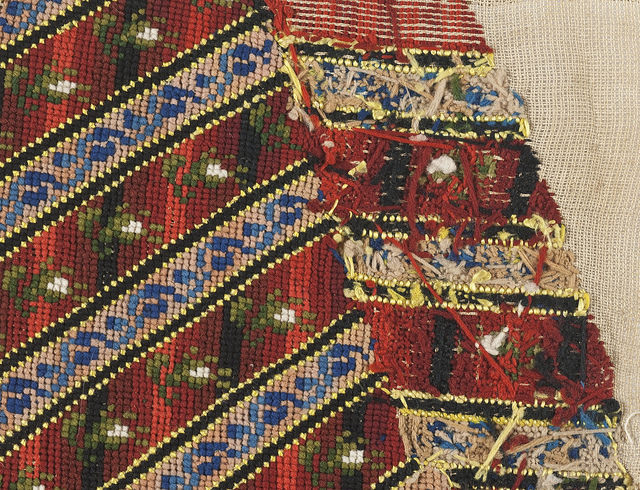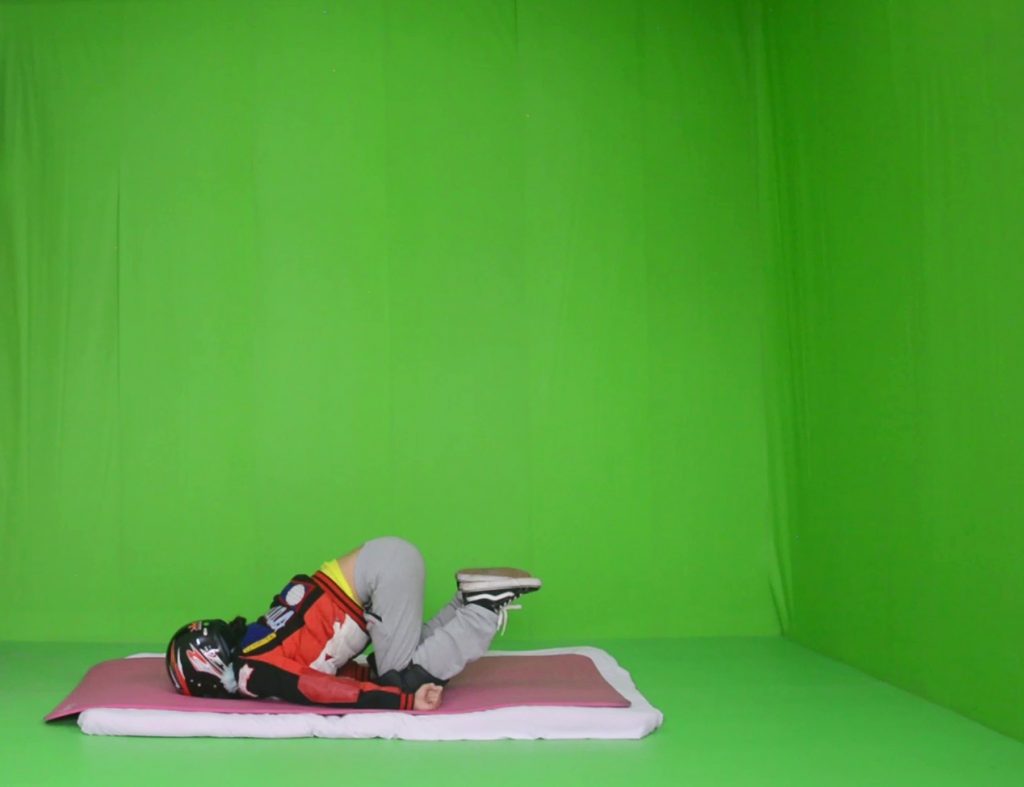The literature of Arab dictators, Asian futurism, and America’s forgotten TV chef, Joyce Chen.

October 13, 2017
Last week’s roundup featured work about being seen and forming a self to be seen, and this week we talk about when appearances, stereotypes, and perceptions become tools for specifically Western influences to control interacting with non-Western spaces. Essays on the American monomyth, how the West interprets Kazuo Ishiguro’s influence, and the forgotten legacy of Joyce Chen are included below.
American Woman by Jorge Cotte
The American monomyth soaked into the very foundation of the nation reappears constantly in superhero films—the most recently acclaimed Wonder Woman is no different in perpetuating this worldview.
This penultimate ending questions a tradition of seeing our primary problems as external threats. We are left with a slew of things that are not punchable: human fallibility, greed, selfishness, myopia, complacency, lack of empathy, denial of power dynamics. The first ending gestures to the beginning of work and hard questions, things that do not assuage fear and lead to cheers. The problem left for humanity, it suggests, is humans.
Then Ares reveals himself.
Tragedy Mistaken for Management Theory: On Kazuo Ishiguro and the Nobel Prize in Literature by Sarah Brouillette
Kazuo Ishiguro is certainly a masterful writer, but what can we make of the systems at play in an awards system that largely uses Western minds to determine the nature of politics and aesthetics in literature and subsequently misinterpret them to fit existing world views?
A familiar literary topic: psychic turmoil, our illusions, an introspective abyss. Whose illusions? What world, exactly? It isn’t stated. The New York Times writes that, “in selecting Mr. Ishiguro, the Swedish Academy, which has been criticized in the past for using the prize to make a political statement, seemed to focus on pure literary merit.” The opposition couldn’t be clearer: there is politics, and there is merit, and these things can occasionally come together in fruitful ways but they have no inherent connection.
America’s Forgotten Television Chef by Mayukh Sen
Few remember Joyce Chen, the Chinese-American chef that made it to television in the 1960s, but that might be because she was never meant to succeed. Mayukh Sen profiles the woman who brought Chinese cooking to the screen, investigating the complicated dance between the structures that got her noticed and the those same structures in the show’s failure.
Or so WGBH thought. It’s a directive that now seems like a somewhat impossible set of parameters for Joyce to succeed within, for it’s inevitable that a show like hers would exist in the shadow of its antecedent. Joyce Chen Cooks had the same studio set as The French Chef, Child’s original set draped in furnishings coded as “Oriental” within the public imaginary; each episode opened with the sound of wind chimes. You could read this as a cruel metaphor for Joyce and the burdens placed upon her: At its core, Joyce’s show was meant to be a carbon copy of Child’s with a gloss of non-threatening, foreign allure. The two women even had the same initials as one another.
The Amateur Fiction of Arab Dictators by Mona Kareem
The West’s fascination with Arab culture manifests in deeply disturbing attempts to turn pen ramblings into the plane of literature, in effect perpetuating stereotypes and marginalizing writers of actual talent. In choosing to delve into the loosely-fictional writings of dictators, the Western academic canon strengthens its demonization of anything non-Western.
The interest in “Saddam Hussein’s world,” as one Iraqi novelist once described it, was a serious western fetish after the Iraq war. Despite the fact that the man ran a bloody and exciting life, in all impossible ways, the scale of horror and violence was not satisfactory for western eyes. They needed play-cards, movies, novels, video games, private recordings, and all sorts of things to complete a picture of the enemy. It was the best way to abstract the mass destruction of Iraq as something far, far away, on another planet, in Saddam Hussein’s world.
Muslim Ban by Rajiv Mohabir
We kick off our #NoMuslimBanEver Digital Poetry Festival today. @rajivmohabir defines what the #MuslimBan. How do you define it? pic.twitter.com/oHMCFCJ74J
— 18MR.org (@18millionrising) October 9, 2017
//platform.twitter.com/widgets.js
Artist Omer Fast’s Take on Chinatown Angers Community Organizations by Danielle Wu
As Halloween approaches, let us again note that a culture is not a costume. Artist Omer Fast costumes his gallery space into a caricature of Chinatown shops, perpetuating the harmful racist stereotypes about the area and its inhabitants.
If time travel were to exist in the future, what would happen if the owners of such powerful technology were white? Omer Fast’s new exhibition at the Chinatown branch of James Cohan Gallery, August, revels in the power of the Western imagination to utilize non-white cultures as a way to role play and “time travel” into playgrounds for voyeuristic pleasure-seeking that reinforce Western modernity’s sense of superiority.
Cyberpunk Cities Fetishize Asian Culture But Have No Asians by Sarah Emerson
Media often focuses heavily negative on the cultural crossover of Asian modernity into Western spaces, and in the new Blade Runner’s futuristic Asian-inspired scenery, we see an inverse where this Asian-crossover aesthetic excludes actual Asian people. The film effectively plays with that fear of cultural crossover by eliminating the thing that Western spaces are actually afraid of: the carriers of non-Western influence.
The neon kanji billboards. Neander Wallace’s yukata, and Joi’s cheongsam. The busy Chinatown. The interactive wall of anime apps. K’s rice-filled bento box. The dual Japanese-English text on everything. All signs that point to a vibrant, multicultural city, but somehow devoid of non-white characters.
If Asians shaped this cyberpunk future, where are they?
Get Away From Me: Laloo (Deluxe Update) by Bhanu Kapil
Bhanu Kapil shares an update to her influential experimental poetry book, Incubation, which follows a Punjabi British cyborg on a road trip across America.
At one point, when my mother was gravely ill and our access to the U.S. health-care system was limited, which is to say nil—must have been 2012?—we…
I don’t know, decided?
To go back to.
Eng.
I am just going to call it Eng because I don’t even know what a country is anymore. No, no, no.
Hate countries.
Basically hate the idea of a country.



